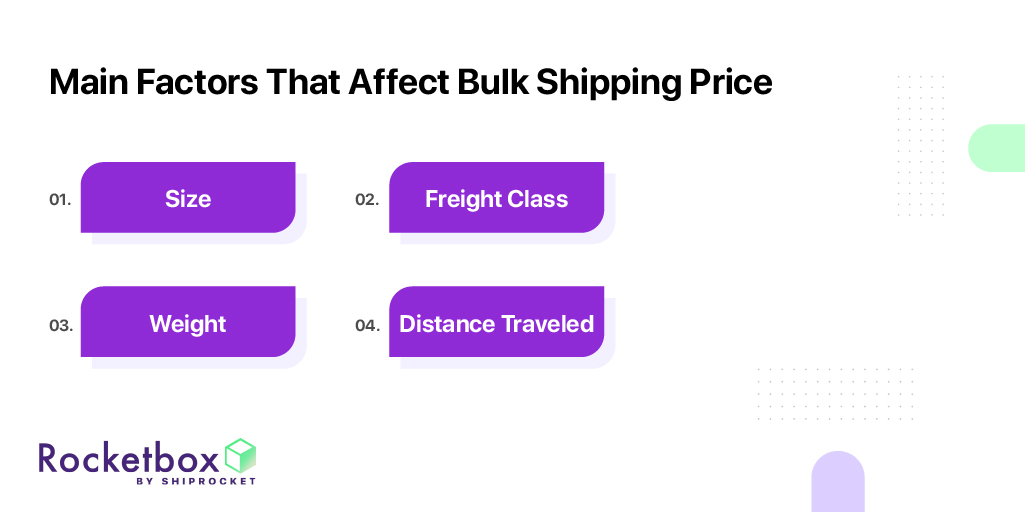Bulk Shipping: Mass Shipping & Shipping Large Quantities
Giant merchant ships go from country to country to deliver goods to various ports with thousands of tons of shipping containers. From oil, milk, cereal, and salt, much more is delivered via ships to ports worldwide.
We have bulk carrier ships designed to carry these goods worldwide and can easily make long journeys across oceans.

What Are Bulk Shipments?
Bulk shipments are large quantities of products/goods that are loaded onto vessels without the final packaging. Such goods are sent on massive, metal shipping containers on deck through a ship. These are designed to endure long journeys across the globe . Also, these ships aren’t best for in-time inventory shipments. These are reasonable eCommerce shipping solutions for the B2B model and those selling wholesale.
How Does Bulk Shipping Work?
Bulk shipping is very similar to regular/standard shipping. However, bulk shipping needs a lot of space, and we also need to make sure that these three steps are followed properly.

- Transport to port storage- Bulk goods are usually stored at the ports where they are shipped from. So, your products are left in a warehouse near the port or are kept in storage containers until shipping. This is somewhat similar to dropshipping, and the storage areas are owned by shipping companies that handle loading and unloading.
- Loading onto shipping containers-Your goods will be stored in a shipping container and then will be hulled onto the deck of a large ship. This is done with the help of a large crane, and each ship can hold thousands of twenty-foot containers.
- Unloading at the destination port- The process will be reversed at the destination and your goods will be loaded onto trucks for getting to the final destination. They can be delivered to the warehouse facility or your own storage space as required.
What Goods Can Be Sent With Bulk Shipping?
Many types of goods can be sent via bulk shipping. However, they are broadly known as dry bulk or liquid bulk. Both the groups are shipped and loaded in different ways but are very common in bulk shipping.
Dry Bulk Shipping
Dry or solid bulk shipping requires the usage of bulk storage containers that are stacked and stored on massive merchant vessels. Dry bulk goods can include anything from grains and wheat to raw materials like wood, coal, etc.
The goods are stowed away by conveyor belts, cranes, hoppers, or silos. They are shipped on vessels that contain a single deck with many hatchways.
Delivery of Liquid and Bulky Goods
Liquid bulk products include any free-flowing liquid material, including chemicals like gasoline and consumables like milk or juice. Liquid bulk products are shipped using specialized deposits or tanks that can be filled with liquids and then shipped across long distances. These tanks are filled with the help of pumping stations and pipelines at ports. Liquid bulk products are always shipped on the largest vessels available with reinforced hulls. These ships can hold over 4,00,000 tons.
How Much Does Bulk Shipping Cost?
Bulk shipping rates vary from company to company, however, they are more or less the same across the industry. These costs are calculated in US dollars per ton cargo.
Factors Affecting Bulk Shipping Prices
The bulk shipping price is generally calculated majorly four factors: shipment size, weight, and distance traveled. However, prices also keep fluctuating from time to time due to different market conditions.

Four main factors that affect bulk shipping prices are mentioned as follows-
- Size and weight- These are the two factors that impact the shipment costs the most. You will have to provide accurate weight and measurements of your cargo, and every item being shipped will also have a National Motor Freight Classification (NMFC) number depending on its weight and size.
- Freight Class: This includes the value of the shipment and how fragile the items are and whether or not they can get damaged. Also, the product’s loadability and handling characteristics. Fragile and valuable products usually have higher freight classification, hence higher freight rates.
- Dimensional weight- This is a formula that considers shipping density to determine the shipping costs. Transportation fees may be based on dimensional weight or gross weight, whichever is greater. For example, items that do not weigh much but take up a lot of space will be charged by dimensional weight.
- Distance traveled- Although the distance traveled sometimes plays a role in influencing bulk shipping costs, rates don’t usually increase on a per-mile basis. Instead, a complicated formula is used to calculate rates taking into consideration groups of origins, destinations, and the type of shipment. Sometimes, per-mile freight rates decline with distance depending on line-haul costs and terminal costs for different transportation modes.
Bulk shipping industry plays an interesting role in ensuring that different products of daily necessities reach people. Bulk goods are classified as solid or liquid and shipping costs are calculated based on four things, including weight and freight class.
Shiprocket Cargo is a delivery and logistics aggregator in India and makes make eCommerce shipping and cargo shipping effortlessly easy for their customers. Shiprocket Cargo is affordable and streamlines Cargo and B2Blogistics with their exhaustive network of carriers. You can now track all your orders and keep customers informed about the courier movement in real-time.



